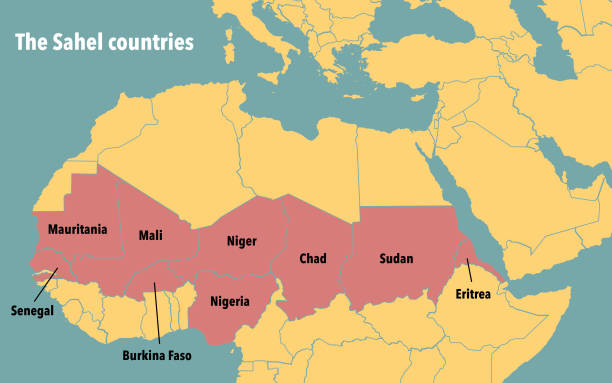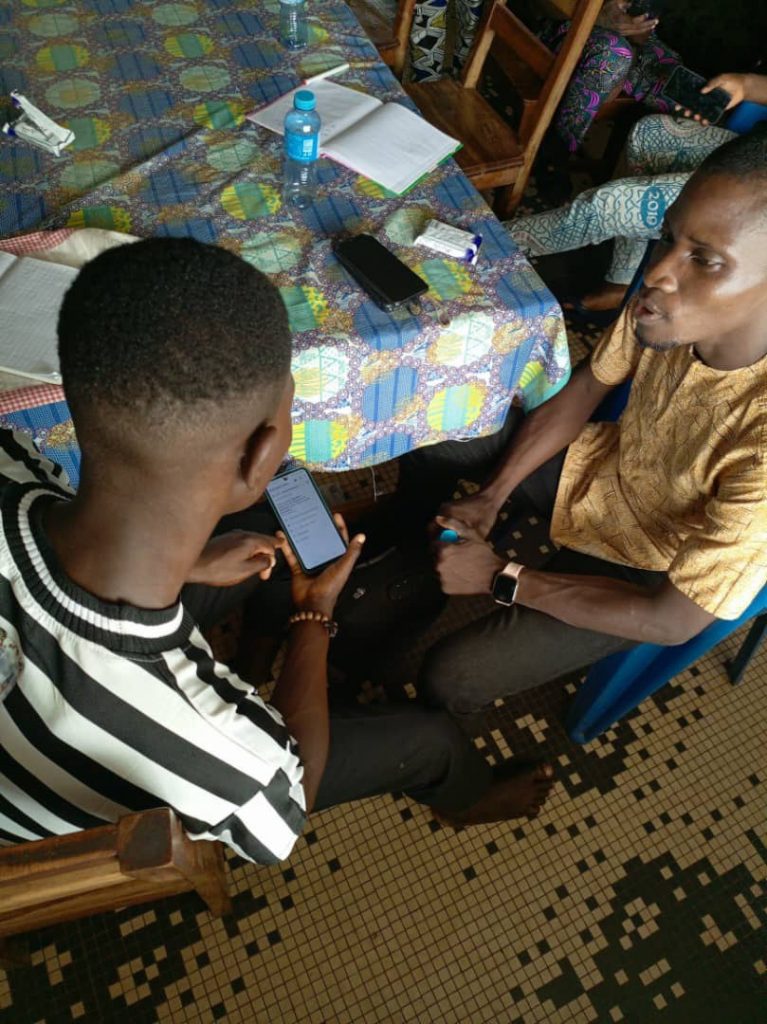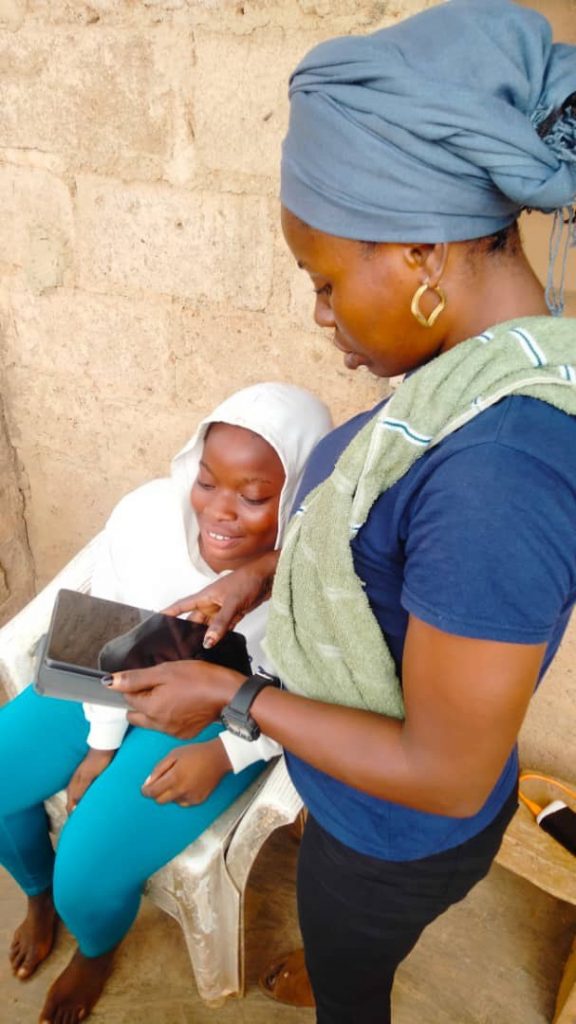
The Sahel region has the fastest-growing population in Africa. At this vulnerable stage of development, demographic trends are directly shaping health outcomes, security, and the overall stability of the region. This rapid population growth is placing increasing pressure on already fragile systems, stretching healthcare services, straining education infrastructure, and amplifying socioeconomic challenges.
The World Bank reports, “demography at this stage of development of the countries of the Sahel is central to their development.” These demographic dynamics influence not only health and education but also impact women’s empowerment, underemployment, poverty reduction, and the risk of political instability.
These interconnected challenges highlight the urgent need for reliable, high-quality data to guide policy and development decisions. Webhaptic Intelligence has extensive experience conducting research in vulnerable regions using electronic data collection methods to capture real-time insight and eliminate data punching errors. We emphasize quality control as an integral part of every project undertaken.
We actively navigate the unique challenges of conducting research in the Sahel while leveraging opportunities to deliver high-quality, context-specific insights.
The Need for Accurate Data Collection in the Sahel
In a region as dynamic and complex as the Sahel, accurate data collection is essential for effectively monitoring challenges and ensuring timely, targeted aid.
Every effective policy, every well-targeted development program, and every life-saving intervention starts with knowing where the need is greatest and what communities actually require. When data is missing, outdated, or inaccurate, interventions risk being poorly targeted, inefficient, or even harmful.
CARE, in its environmental initiative focusing on reforestation used data analytics to track tree survival rates, biodiversity outcomes, and local engagement. This not only improved program outcomes but also helped the organization secure additional CSR funding from corporate partners.
Since 2015, more than 891,135 girls have benefited from programs designed to keep them in school, attaining a retention rate of 93% in the SWEDD initiative (Sahel Women’s Empowerment and Demographic Dividend). This initiative operates in several countries, including Benin, Burkina Faso, Chad, Mali, and Niger. This highlights how data can be used to drive major improvements in vulnerable regions.
Data collection in the Sahel serves as a spur for progress, informing policy, driving investment, and guaranteeing that interventions are both targeted and impactful.
Challenges of Data Collection in the Sahel
While there are a lot of potential benefits conducting research in the Sahel, it also comes with major barriers, including:
1. Insecurity and Conflict
Some regions in Sahel are active conflict zones and vulnerable to terrorist attacks, making face-to-face surveys dangerous for both enumerators and respondents. All these can make data collection a challenge, which is why Webhaptic Intelligence adopts remote data collection methods such as Computer-Assisted Telephone Interviewing (CATI). This approach ensures the safety of both field teams and respondents while still gathering high-quality, timely data from even the most hard-to-reach communities.
2. Geographic and Infrastructure Barriers
Infrastructure presents a challenge, as remote villages often lack access to roads, energy solutions, and mobile network coverage. These pose limitations and difficulty in carrying out a project successfully. Webhaptic Intelligence addresses these challenges by working with local partners who understand the terrain and leveraging hybrid methods with field-based data relays to ensure all-around coverage despite infrastructure gaps.
3. Linguistic Intricacy
The Sahel spans across 10 countries, each with its own mix of languages and cultural context. Many communities speak indigenous languages, and literacy levels can be low, which makes standard data collection tools less effective. This complexity requires personnel with specialized linguistic and cultural knowledge, as well as adapted questionnaires that can be administered in local languages. Webhaptic Intelligence respond to this by recruiting and training local enumerators who speak the native dialects, ensuring that questions are clearly understood and responses accurately captured—essential steps for collecting high-quality, context-relevant data.
4. Respondent Distrust
Political instability, security concerns, and past negative experiences with surveys have contributed to a sense of distrust among many communities in the Sahel. People may be hesitant to share personal information or participate in research due to fears of surveillance, misinformation, or unmet promises. Webhaptic Intelligence builds trust by engaging local leaders, clearly communicating the purpose of the research, and ensuring respondent confidentiality.
5. Gender and Cultural Sensitivities
In many Sahelian communities, cultural norms influence who can speak with whom, especially when it comes to women. Women may be less accessible for interviews due to household responsibilities, constrained mobility, or the need for a gender-matched enumerator. Ignoring these dynamics can lead to skewed data or missed insights. Webhaptic Intelligence play an active role by deploying gender-sensitive field teams, including female enumerators where necessary, and adapting survey times and methods to fit local cultural contexts, ensuring that all voices, especially those of women, are represented in the data.
How Webhaptic Conducts CATI Research in the Sahel
We deploy Computer-Assisted Telephone Interviewing (CATI) as a strategic solution for collecting reliable data in hard-to-reach and high-risk areas across the Sahel. With deep regional expertise and trained, multilingual interviewers, we engage respondents in their native languages and navigate local nuances with cultural sensitivity and professionalism.

Webhaptic Intelligence has a strong presence across Sahelian countries, including Burkina Faso, Mali, Chad, Cameroon, and Nigeria. We have successfully conducted telephone-based interviews in vulnerable regions. Our approach involves onboarding and training interviewers who are native speakers and familiar with the cultural nuances of their communities, ensuring clarity, trust, and relevance in every interaction.
Where conditions allow, we complement CATI with Computer-Assisted Personal Interviewing (CAPI) for in-depth, face-to-face data collection and with Focus Group Discussions (FGDs) to gather rich qualitative insights. These mixed-method capabilities ensure that we adapt to the realities on the ground while maintaining methodological rigour.
Fieldwork Data Collection Capacity in the Sahel

Webhaptic Intelligence’s Field Force division equips businesses and development partners with best-in-class data collection services across Africa. Our mobile workforce supports a diverse range of clients with rapid, structured solutions, spanning surveys, interviews, focus groups, and social research. Every project is delivered to the highest standards, backed by innovative tools, rigorous processes, and a commitment to professional research operations.
We own and operate the following infrastructure and capabilities:
- Agile Qualitative Data Collection and Analysis: We utilize a flexible approach to qualitative data collection and infuse participatory and visualization tools which resonates with different target respondent profiles either at the peak or base of the pyramid.
- Focus Group Research Facilities: We run three state-of-the-art facilities in Nigeria, Kigali, Accra and Senegal each equipped with one-way viewing mirrors and real-time streaming capacity to support focus group discussions.
- Data Analysis Systems: To ensure depth and accuracy, we use advanced tools like NVivo and ATLAS.ti for coding, visualizing, and interpreting transcripts, field notes, and multimedia data.
Webhaptic Intelligence is actively collecting data in the Sahel region, and we can mobilize quickly for any research project. If you are seeking localized insights, hard-to-reach respondents, or rigorous monitoring and evaluation, our team is up and ready to deliver.
Contact us today to know more about our research capabilities in the Sahel at info@webhaptic.com
